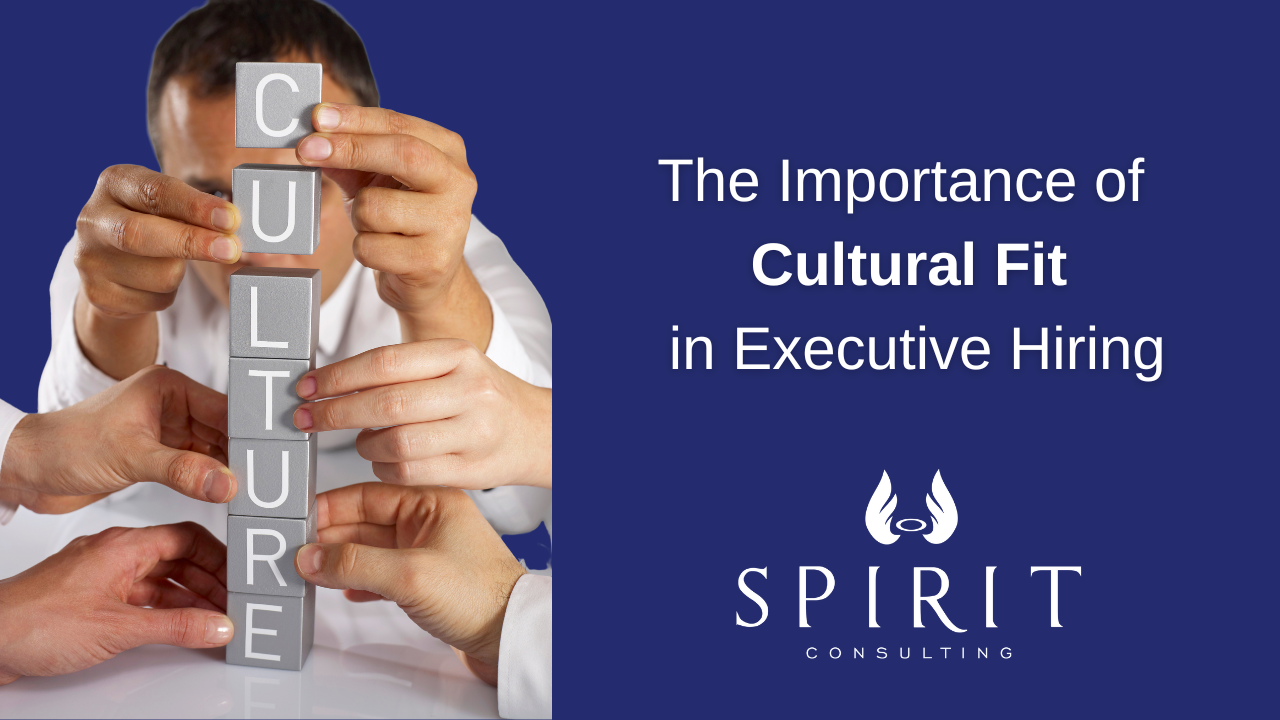In the dynamic world of executive hiring, finding candidates with the right qualifications and experience is paramount. However, there’s another critical factor that often determines long-term success within an organization: cultural fit. As an executive search company specializing in healthcare, we understand the profound impact that cultural alignment can have on both individuals and the companies they serve. In this blog post, we’ll delve into why cultural fit matters so much in executive hiring and how it contributes to sustained success.
Understanding Cultural Fit
Cultural fit refers to the alignment between an individual’s values, behaviors, and working style with those of the organization they are joining. It encompasses shared beliefs, norms, and practices that shape the work environment and employee experience. While technical skills and industry expertise are essential, they are only part of the equation. Without cultural fit, even the most qualified executive may struggle to thrive within an organization.
Driving Long-Term Success
Executives who resonate with the company culture are more likely to be engaged, motivated, and committed to their roles. They understand and embody the organization’s mission, vision, and values, which strengthens their alignment with strategic objectives. Moreover, culturally aligned executives foster a positive work environment, driving collaboration, innovation, and employee morale. This synergy ultimately translates into enhanced performance, retention, and organizational success.
Preserving Organizational Identity
Every company has its own unique culture that defines its identity and sets it apart from competitors. Cultural fit ensures that executives not only contribute to but also enrich and preserve this identity. They become ambassadors of the organization’s culture, both internally and externally, reinforcing its reputation and brand image. Furthermore, culturally aligned leaders set the tone for the rest of the workforce, shaping norms and behaviors that reflect and uphold the company’s values.
Mitigating Risks and Challenges
Hiring executives who lack cultural fit can lead to various challenges, including conflicts, disengagement, and turnover. Misalignment may disrupt team dynamics, impede decision-making, and hinder collaboration across departments. Moreover, executives who clash with the company culture may struggle to gain the trust and respect of their peers, subordinates, and stakeholders. In the worst-case scenario, it can result in costly hiring mistakes and damage to the organization’s reputation.
Strategies for Assessing Cultural Fit
Identifying cultural fit during the executive hiring process requires a holistic approach. It involves evaluating not only technical competencies but also behavioral traits, leadership qualities, and values alignment. Incorporating cultural fit assessments, behavioral interviews, and reference checks can provide valuable insights into a candidate’s compatibility with the organization. Additionally, involving key stakeholders and existing leaders in the hiring process can help gauge cultural fit from multiple perspectives.
Conclusion
In the competitive landscape of executive hiring, cultural fit is a crucial determinant of long-term success. Executives who align with the company culture and values are more likely to thrive, drive organizational performance, and preserve the company’s identity. By prioritizing cultural fit in executive recruitment, healthcare companies can build cohesive teams, foster a positive work culture, and achieve sustainable growth in today’s ever-evolving industry landscape.



0 Comments